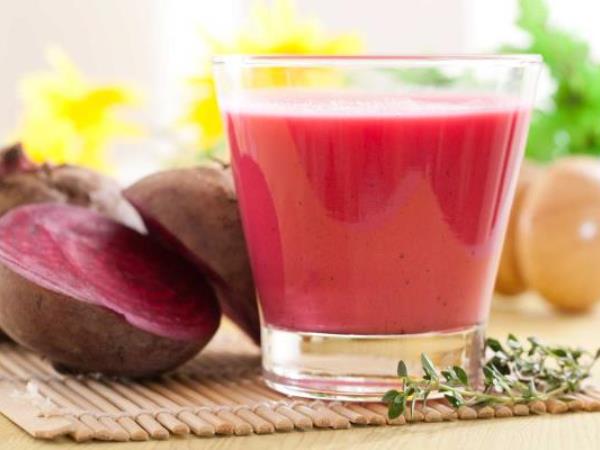Beetroot is full of medicinal and nutritious ingredients, and if stored properly, it can last in the cellar for 5 to 6 months. That's why it is one of the greatest sources of health in winter months, but beware.
Beetroot juice cleanses the body and lowers fever. The recommended amount of beetroot juice reduces blood pressure, while exceeding it raises it. For some, as little as 2 dl a day (approximately half of a small bulb) is enough, for others 5 dl. Additionally, it's good to know that pasteurized juice (store-bought or prepared for winter storage) lacks live substances, making it less nutritious.
Red beets were already used by ancient Romans to treat fevers and constipation. Beetroot, rich in vitamin B9, iron, potassium, and folic acid, is good for the blood. Furthermore, beets are low in calories and are beneficial for weight loss diets.
Lack of folic acid (also known as vitamin B9) causes fatigue, poor memory, mental tension, eczema, chapped lips, pale skin ... It is also essential for cell metabolism, influences the proper breakdown of proteins ...
Beetroot restores intestinal mucosa. Beetroot juice strengthens the immune system and stimulates the lymphatic system.
You can combine beetroot juice with spinach and carrots, or you can roast beets by cutting them into cubes, adding spices (especially thyme works well), wrapping everything in aluminum foil, and baking for 45 minutes at 180 degrees Celsius.
And one more detail not to overlook: Among all vegetables, beetroot has the most carbohydrates and the highest sugar content. This is why a variety of sugar beets has been developed from it for sugar production today.
Datum: 18. JAN 25 - GOOD TO KNOW
In the middle of winter, it's always time for beetroot juice
Beetroot juice effectively detoxifies the body, cleanses the liver, and heals a variety of diseases, but there are a few things you need to know ...
(FW)
 Would you like to be informed about news on the website?
Would you like to be informed about news on the website?
Just enter your e-mail
Beetroot juice benefits
Beetroot detox
Beetroot health benefits
Beetroot nutrition
Beetroot recipes
|
Copyright (c) Foodwhisper.com March 2018 |
π | Contact: info@foodwhisper.com |
About us | Facebook |  |









